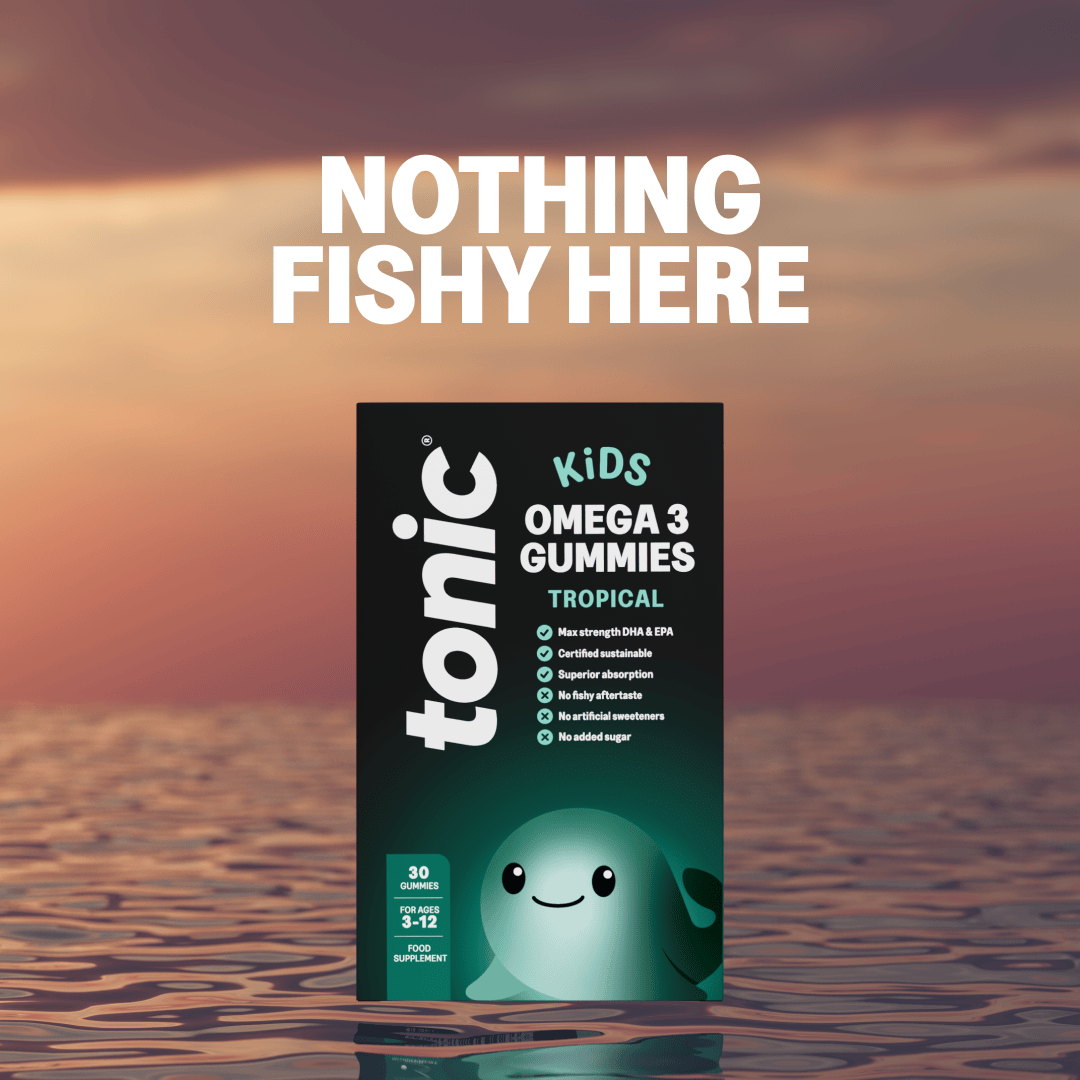Do you feel like you’re running on empty, no matter how much you sleep?
You wake up tired, rely on coffee to kick-start your brain, need sweet or salty snacks between meals to survive the day, crash on the sofa in the evening unable to function… but with your mind still going at a million miles an hour?
You blame stress, a busy schedule, or ‘just one of those weeks.’ But what if the way you’re eating is quietly feeding your burnout?
When we talk about burnout, the focus is usually on being incapable of getting out of bed, to the point where you’re signed off work. That’s one state of burnout for sure, and I don’t wish it on anyone, but you need to know that functional burnout is a real modern-day state too. It’s where many people are currently operating, with an excessive workload and chronic stress.
However, even if we acknowledge that we might be close to, or experiencing, functional burnout, there’s a critical piece we can’t forget: your food choices could be contributing to your exhaustion.
In fact, nutrition is one of the most overlooked tools for preventing and recovering from burnout. The food we eat and how we feel, including how close we are to burnout, are deeply connected.
Are you feeling like this could be you? Here’s what you can do about it…
Burnout: are you closer than you think?
Burnout can be challenging to distinguish when our normal state has become one of busyness, stress, and overwhelm. Burnout is a state of chronic physical and emotional exhaustion, often caused by prolonged stress, and your body feels it before your mind does.
The symptoms:
- Constant fatigue
- Brain fog
- Low motivation
- Cravings
- Poor sleep
- A short fuse
- Frequent illness
Physiologically, chronic stress disrupts the HPA axis (the brain-adrenal stress-signalling system), leading to imbalances in cortisol, insulin, and other key hormones. Over time, this takes a toll not only on your mind but also on your metabolism, gut, and even how your body absorbs nutrients.
Food isn’t just fuel. It’s information. And under stress, incorrect information can exacerbate the situation.
The blood sugar rollercoaster is burnout's best friend
One of the most common and subtle ways that food contributes to burnout is through unstable blood sugar levels.
Picture this: you skip breakfast, grab a croissant on the go, power through with coffee, then reach for a quick snack when energy dips mid-afternoon. By 4 pm, you're wired and tired and desperate for something to give you another pick me up. A snack.
High-sugar or high-carbohydrate food causes a rise in blood sugar, followed by a crash. Your body perceives the crash as a mini emergency, releasing cortisol and adrenaline to replenish glucose levels. If this cycle repeats throughout the day, your stress response is constantly triggered.
Symptoms of this cycle often mimic burnout:
- Irritability
- Poor concentration
- Anxiety
- Low mood
- Energy slumps
And it’s not just about what you eat, but when you eat matters too. Skipping meals or going long stretches without food puts your body into stress mode, even if you don’t feel hungry.
Try this instead:
- Eat within 1-2 hours of waking.
- Base meals around protein, aiming for 30g each meal.
- Include healthy fats and fibre-filled carbohydrates.
Are low nutrients draining your energy?
Unfortunately, chronic stress and poor food choices do more than just destabilise blood sugar; they deplete your body of key nutrients, the very ones needed to help you cope with stress in the first place.
Here are some of the most significant losses:
- Magnesium - an essential for muscle relaxation, mood regulation, and sleep, yet burned through rapidly during stress. Low levels are linked to anxiety, headaches, fatigue and difficulty sleeping.
- B Vitamins (especially B6, B12, Folate) - crucial for energy production, brain function, and neurotransmitter balance (those lovely brain chemicals). Deficiencies can lead to low mood, poor focus, and low stamina.
- Vitamin C - not just for immunity, it is used in abundance by our adrenals and acts as a powerful antioxidant. Stress increases your need for it dramatically.
- Iron & Ferritin - low iron levels can cause fatigue and poor concentration, particularly in menstruating women or those following a plant-based diet. Stress can reduce the absorption of iron from foods.
- Omega-3 Fatty Acids - support brain health, reduce inflammation, and may help buffer mood swings and burnout symptoms.
Even if your diet appears healthy on the surface and you feel you’ve got these nutrients covered, stress increases your demand for them, and digestion often suffers under pressure, making absorption of nutrients less efficient.
Gut-brain communication
Stress and burnout don’t just affect your brain; they disrupt your digestion, too.
When you’re in fight-or-flight mode, the body can struggle to create digestive enzymes and HCL (stomach acid) needed to break down food and aid absorption of nutrients and resources. This can lead to:
- Bloating.
- Constipation or loose stools.
- Increased food sensitivities.
- Nutrient malabsorption.
What’s more, your gut and brain are directly connected via the gut-brain axis, also known as the vagus nerve. An imbalance in gut bacteria (often triggered by stress, antibiotics, alcohol, or ultra-processed foods) can directly impact your mood, energy, and immunity.
Consider your eating speed; are you chewing 20-30 times? Are you distracted while eating, and does it become more about speed than need? This puts enormous pressure on the digestive system, so aim to eat more slowly, engage with your food, and, importantly, engage in some deep breathing before you start eating to shift yourself out of ‘fight or flight’ and into ‘rest or digest’.
This is why desk lunches are not a good idea!
Caffeine is not energy; it’s a stimulant
When you're running on empty, it's tempting to reach for another coffee. But caffeine can be a double-edged sword, especially in the context of burnout.
It stimulates the same hormones (cortisol and adrenaline) that your body is already producing in excess under stress. And while it provides a temporary lift, the eventual crash can exacerbate fatigue. Over time, excess caffeine can disrupt sleep, blunt natural energy rhythms, and contribute to anxiety.
You don’t need to ditch coffee altogether (in fact, it has some great benefits), but consider cutting down, being strategic about timing (avoid after 2 pm), and perhaps also considering quality.
UPFs might be convenient now, but…
When you’re tired, stressed, and short on time, ready meals and takeaways can feel like a lifesaver. They’re quick, comforting, and easy. But while ultra-processed foods (UPFs) offer short-term convenience, they often come at a long-term cost, especially when you’re already burned out.
UPFs - think packaged snacks, sweetened cereals, meal bars, and even many “healthy” convenience foods - are typically high in refined sugars, poor-quality fats, additives, and low in the nutrients your body urgently needs under stress.
They might take away the added burden of cooking, but they add more burden inside your body. Blood sugar crashes, nutrient depletion, gut disruption, inflammation – all of it amplifies the stress you’re already under, keeping you stuck in the cycle of fatigue and burnout.
So, how do you build a recovery food plate?
The good news? The right foods can stabilise your stress response, replenish depleted nutrients, and help you feel like yourself again. Although I must warn you that, if you’re burning the candle at both ends, it will catch up with you, so remember that sleep and is vital too for avoiding burn out and rest is productive.
Build burnout recovery on:
- Balanced blood sugar - include protein with each meal and avoid skipping meals.
- Eat the rainbow - think fibre-rich plants like legumes, broccoli, carrots, beetroot, peppers, rocket, etc.
- Healthy fats - olive oil, avocado, nuts, seeds, and oily fish.
- Hydration - even mild dehydration can affect energy, mood, and focus.
- Magnesium-rich foods - dark leafy greens, pumpkin seeds, almonds, dark chocolate (yes!).
And don’t forget: how you eat matters too. Create calm mealtimes whenever possible, avoid multitasking while eating, and chew your food slowly to aid digestion.
Burnout doesn’t just come from doing too much; it can come from running on empty, physically and emotionally. If your energy is consistently low, your cravings are persistent, and your mood feels flat, your body may be signalling that it’s overwhelmed. And food can either support or stress it further.
Taking care of what’s on your plate isn’t about adding another task to your to-do list. It’s about laying the groundwork so you can show up






Leave a comment
All comments are moderated before being published.
This site is protected by hCaptcha and the hCaptcha Privacy Policy and Terms of Service apply.